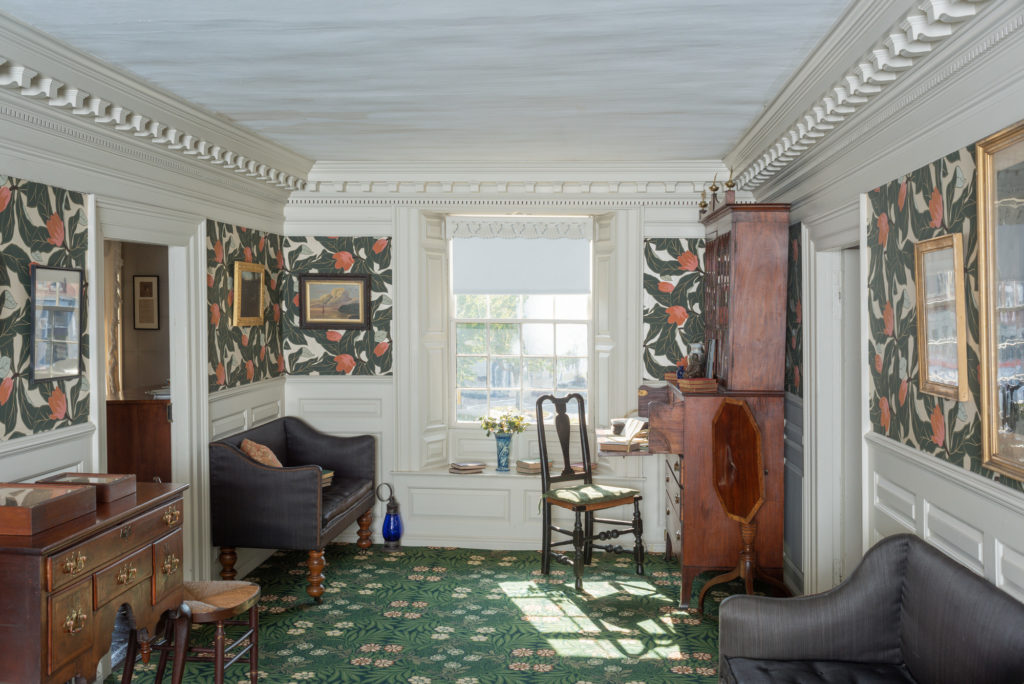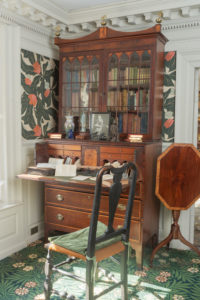 Sarah Orne Jewett House
Sarah Orne Jewett House
A Place to Write

Sarah Orne Jewett wrote in “Lady Ferry,” Old Friends and New, “One often hears of the influence of climate upon character; there is a strong influence of place, and the inanimate things which surround us indoors and make us follow out in our lives their own silent characteristics. We unconsciously catch the tone of every house in which we live, and of every view of the outward, material world which grows familiar to us, and we are influenced by surroundings nearer and closer still than the climate of the country which we inhabit.”
Jewett was born in her grandfather’s house and grew up next door in a house built on the family compound. As a child, she sat on the fence lining the property and watched townspeople coming and going in the village center. Often spending time in the house of her grandfather, a retired sea captain, she would have heard the stories of old sailors and traders, those of the cooks and maids bustling around the house, and those of her step-grandmother, with whom she was close. A “wild and shy” child, she preferred the woods, fields, and river to the indoors, and books to the classroom.
 As an adult, Jewett wrote at her grandfather’s desk in the second-floor hall, by a large front window overlooking the town center and the people of South Berwick. The choice of writing place seems apt for an author who followed her father’s advice: “Show people as they are.”
As an adult, Jewett wrote at her grandfather’s desk in the second-floor hall, by a large front window overlooking the town center and the people of South Berwick. The choice of writing place seems apt for an author who followed her father’s advice: “Show people as they are.”
Editor and friend William Dean Howells wrote, in a 1903 letter to Sarah Orne Jewett, “Your house will always remain a surprise to me, not because it was not the fittest possible setting for such literature as yours, but just because it was.”